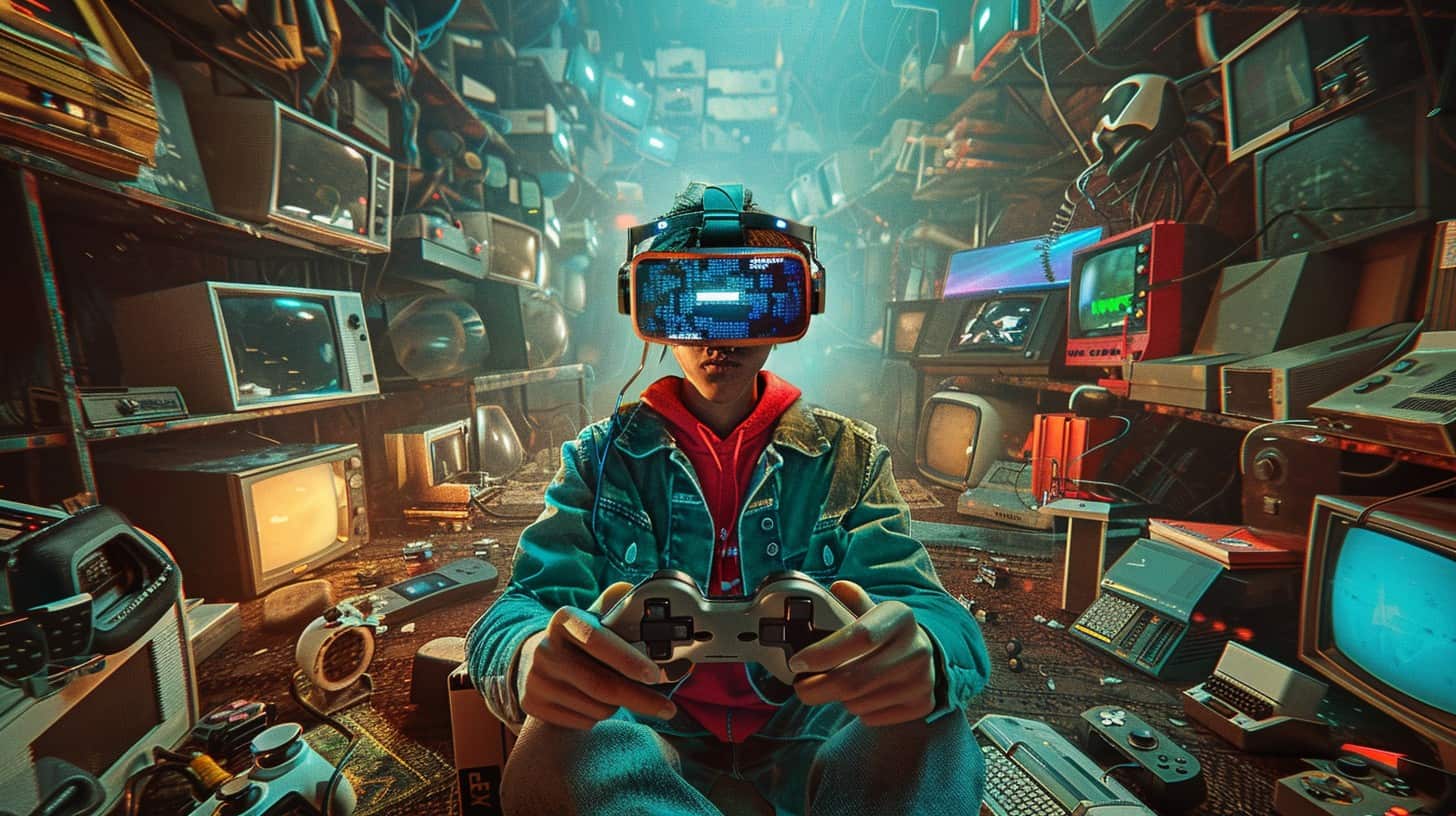Are you feeling like gaming isn’t what it used to be? Last year, the gaming world made over $184 billion. This post will walk you through why some folks think gaming is on a downhill slide and what to expect next year.
Stay tuned!
Key Takeaways
Gaming made over $184 billion last year, showing it’s still a big deal.
New ways to play, like virtual reality and cloud gaming, are coming out fast.
Games now have things you can buy inside them, but not everyone thinks this is good.
Some creators keep making new and exciting games that many people love.
Players want games to be fun and fair, without feeling pushed to spend more money.
Table of Contents
Analyzing the Gaming Industry’s Present Condition
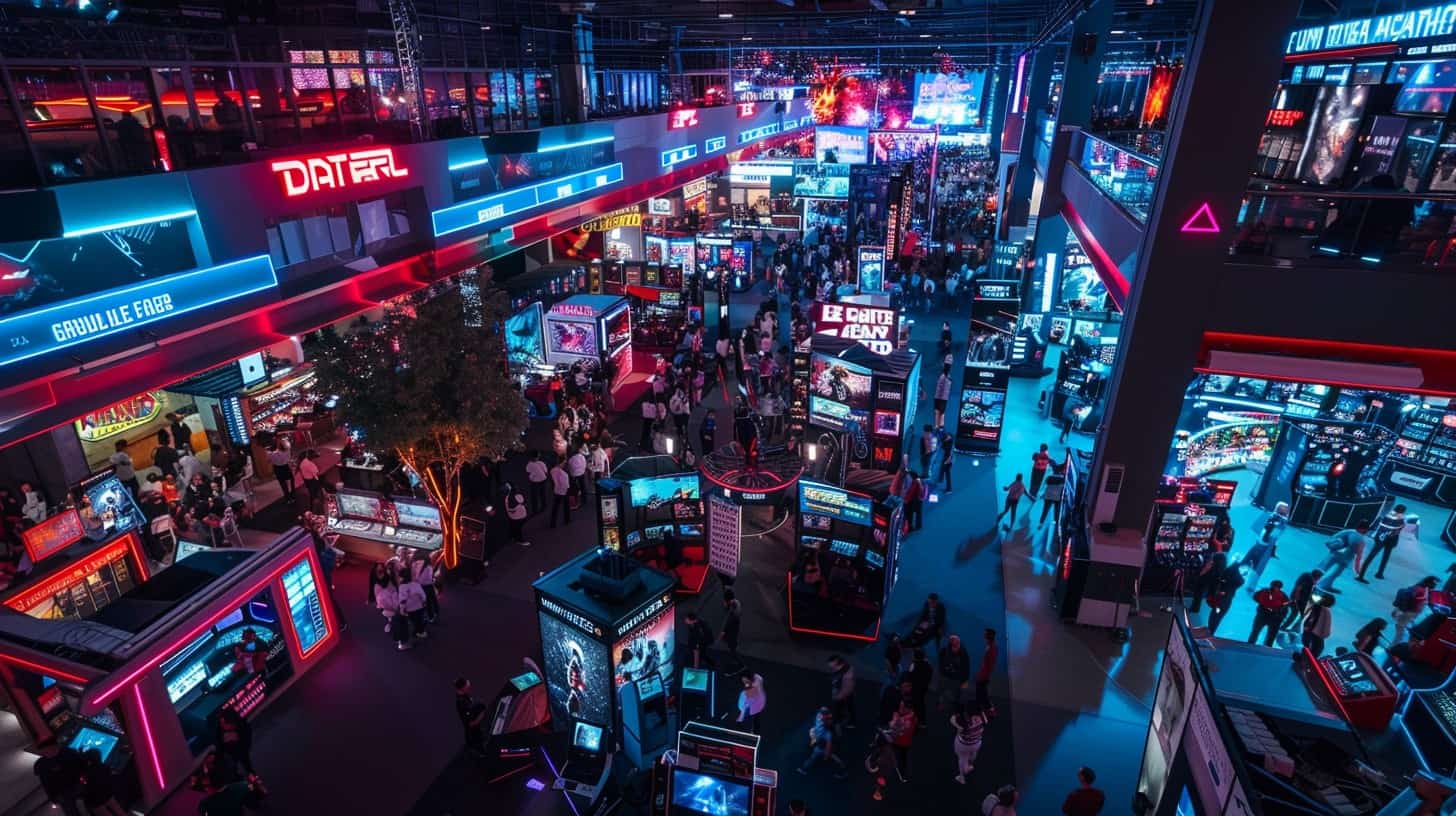
The gaming world is changing fast, with microtransactions and battle passes becoming common. Companies are shaping how we play, but not everyone likes the new direction.
The Rise of Microtransactions, Loot Boxes, and Battle Passes
Microtransactions, loot boxes, and battle passes have become big players in the gaming scene. These features let gamers buy virtual goods with real money. Think skins for characters or special weapons that make you stand out.
Games like Fortnite and Call of Duty pack their worlds with these buys, making it tempting to spend a few bucks here and there. And it adds up fast! Some countries are stepping in, calling out loot boxes for being too much like gambling.
They’re putting rules on them to keep things fair.
Gaming is evolving – sometimes your wallet feels the hit more than your high score.
Battle passes changed the game too. Pay once; earn rewards as you play through seasons. It’s like a marathon, where every step can unlock something cool or give you an edge over others who don’t join in.
This model keeps gamers coming back for more, grinding to snag all they can while the season is hot. These trends show no signs of slowing down as we move into 2024, painting a picture of a future where skill is still king, but having some extra cash doesn’t hurt either.
Corporate Strategies and Their Effects on Gaming
Big companies see games as cash cows, not art. They push for more titles with fewer resources. This rush often leads to games hitting the market before they’re ready. We’ve all seen our fair share of buggy launches, haven’t we? These strategies are more about making money fast than delivering a solid experience.
It’s like cooking a burger in 30 seconds – sure, it’s quick, but is it good?
Then there’s the heavy focus on microtransactions and live services. These aren’t just addons anymore; they’re becoming the core of many AAA games and multiplayer platforms. Instead of buying a game once, players keep paying for skins, characters, or even power-ups.
It’s like being nibbled to death by ducks: slow and annoying. This approach can squeeze more money from gamers but at what cost? Many feel this sucks the joy out of gaming and turns epic quests into endless grinds for loot or currency.
Innovation and Creativity in the Gaming Landscape
Shifting from how big companies shape games, let’s talk about fresh ideas and artistry in video games. Creative minds are always at work, dreaming up worlds that amaze us. They build places like the magical lands in “Elden Ring” or the gripping stories of “Ghost of Tsushima.” These aren’t just games; they’re gateways to new realities.
Creativity fuels gaming, turning the ordinary into extraordinary adventures.
Developers use tools like Unity and Unreal Engine to bring their visions to life. These platforms give creators the power to weave complex tales and craft stunning landscapes. From puzzle-platformers like “It Takes Two” to epic sagas found in “Final Fantasy,” innovation is everywhere.
Games no longer just entertain; they transport players, offer escapes, and challenge minds in ways books and movies can’t match. This push for new experiences keeps gaming vibrant and far from fading away.
The Growth of Online Gambling within the Gaming Industry
As creativity in games skyrockets, so does the world of online gaming take a twist, with gambling stepping onto the scene. It’s no longer just about scoring points or beating bosses.
Now, many gamers find themselves spinning slot machines or laying cards in virtual casinos right within their favorite multiplayer and single-player games. This blend has turned some video games into gateways to gambling, sparking a debate far and wide.
Countries are cracking down on loot boxes, calling them out for being too gamble-y. They either ban them outright or keep a tight leash through regulations. This move aims to protect players from falling too deep into the rabbit hole of betting more than they bargained for in both time and money.
Meanwhile, live service games keep fueling this trend by integrating features akin to those found in the best online casino NZ, making every click a wager of sorts.
Debating the Decline of Gaming
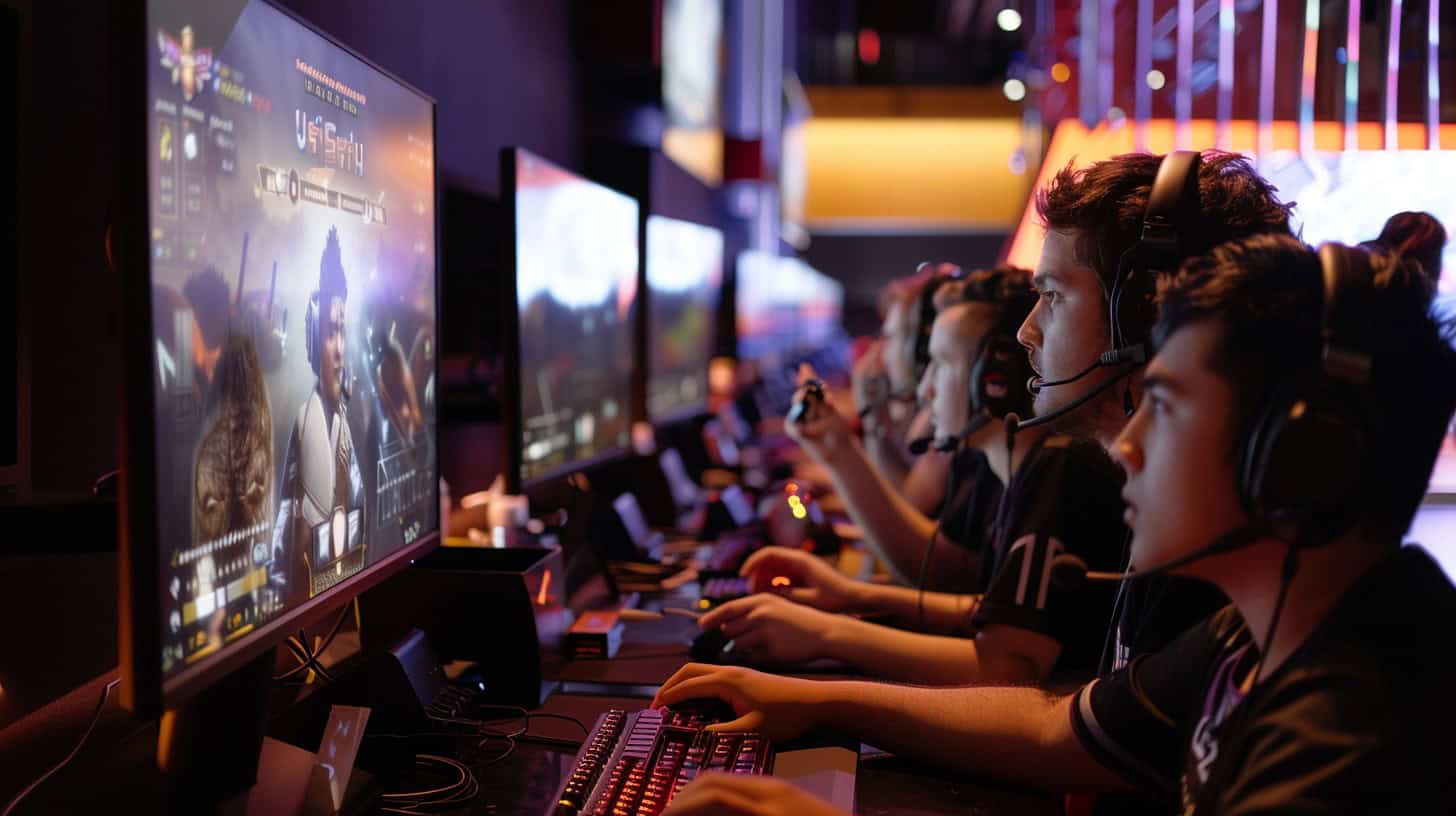
Talking about games losing their spark stirs up a big pot. Is gaming taking a nosedive, or are we just seeing the same old tricks in shiny new boxes? This chat dives deep, so keep your eyes peeled for what’s around the corner!
Stagnation in Technological and Game Development Advances
Games aren’t growing as fast as before. Big companies focus more on making money than on new ideas. This means we see the same kinds of games all the time, without much change. They rush to sell these games, often before they’re really ready.
Players then have to wait for updates to fix them.
Every game feels like déjà vu wrapped in a newer package.
This lack of fresh gameplay and innovation makes gamers feel bored. Even with fancy graphics and big worlds, if the game plays like every other one you’ve tried, why bother? Companies used to take risks; now it seems they just play it safe to keep cash flowing.
The Trend of Sequels and Marginal Enhancements
The gaming world loves a good sequel. Think about it. A hit game drops, and fans are already chanting for more. So companies listen, and what do we get? Part two, three, even part twelve.
But here’s the kicker: sometimes these sequels feel like the same old song with just a tiny bit of new dance steps added in. It’s as if they took the original game, gave it a shiny coat of paint, threw in a couple of extra levels or guns, and called it new.
And let’s not forget those tiny upgrades that barely make waves—marginal enhancements, they say. Like when your favorite open-world game gets an update that adds nothing but a few hats for your character or fixes bugs that should’ve been squashed before launch day.
It’s frustrating to see big names betting on sure things rather than rolling the dice on fresh ideas artfully crafted from scratch by masterful developers who still play for the love of the game instead of playing safe with their revenue charts always in view.
We’re left asking: where did all the bold adventures go?
The Interplay of Financial Ambitions and Corporate Priorities
Money talks in the gaming world. Big companies chase profits over creating epic adventures we used to love. They cut corners, rushing games that aren’t ready for prime time. Ever noticed more online battles and fewer solo quests you can dive into without extra fees? That’s because live service models with microtransactions promise ongoing cash flow, turning games into endless money pits.
Greed has taken the driver’s seat. Passion for crafting immersive worlds takes a backseat to releasing more titles with minimal effort. This shift leads to uninspired sequels packed with in-game purchases rather than groundbreaking experiences.
Remember when finding a hidden level felt like uncovering buried treasure? Now, it feels like everything cool sits behind a paywall, asking for your wallet on top of your time.
Highlighting the Innovators of the Gaming World
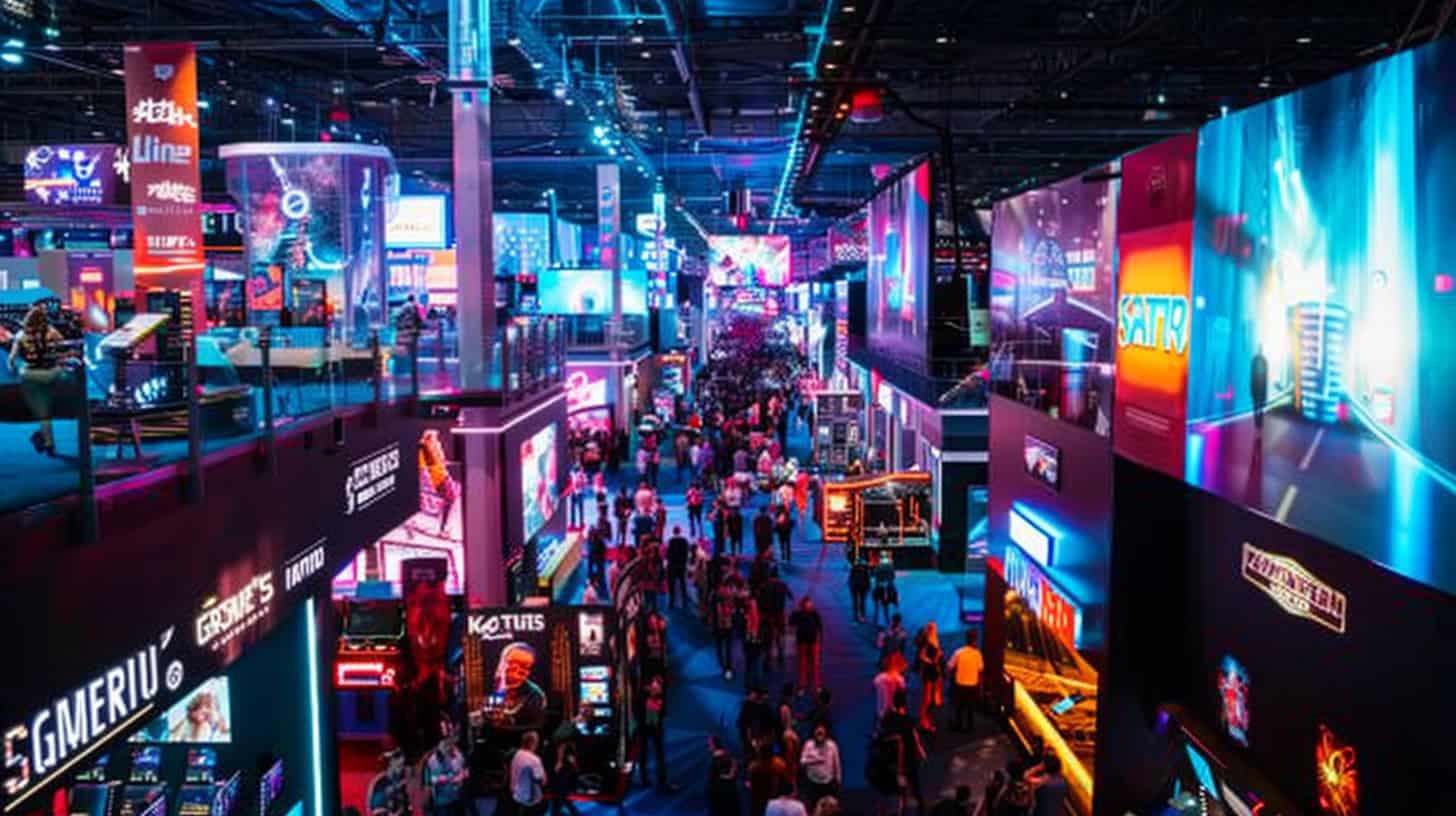
Some game makers are changing the rules of the play. They bring new worlds to explore and fresh ways to win.
Trailblazing Companies in the Gaming Sector
Gaming is far from dying, thanks to some standout companies. They keep things fresh and exciting.
- Epic Games pushes boundaries with Fortnite. They turned a simple shooter game into a cultural phenomenon. Events, concerts, and even movie trailers make Fortnite more than a game.
- Nintendo always surprises us. With the Nintendo Switch, they bridged home and portable gaming in a snap. Their games, like Mario Kart and The Legend of Zelda, are classics yet always feel new.
- CD Projekt Red took storytelling to new heights with The Witcher 3: Wild Hunt. They crafted a world so rich that players lose themselves for hours. Their commitment to quality, even in cyberpunk-themed RPGs, sets them apart.
- Microsoft Gaming is reshaping how we play through Xbox Game Pass and cloud gaming. It’s like Netflix but for video games. Players get access to tons of games without breaking the bank.
- Tencent leads in mobile gaming market dominance. With hits like PUBG Mobile, gaming on the go has never been better or more competitive.
- Valve Corporation keeps PC gaming at its peak with Steam Deck and continuous updates to Steam. This handheld device lets players take their favorite PC games anywhere.
- These companies show us that innovation drives the gaming industry forward. They’re not just making games; they’re creating experiences that keep us coming back for more.
Revolutionary Games Redefining the Industry
Moving from the companies shaping our gaming experience, let’s shift gears to the games themselves making waves. These titles aren’t just fun to play; they’re changing how we think about gaming.
- Fortnite took the world by storm with its battle royale mode. This game mixed shooting and building in ways no one had seen before. It became a cultural phenomenon, showing games can bring people together on a massive scale.
- Call of Duty: Warzone pushed the envelope further in the shoot-’em-up genre, with huge maps and 150 players fighting to be the last one standing. It raised the bar for what players expect from multiplayer experiences.
- The Legend of Zelda: Breath of the Wild redefined open-world adventures. Instead of guiding players on a set path, it said, “Here’s a world. Go explore.” And it worked brilliantly, encouraging discovery and experimentation.
- Minecraft is all about creating and surviving in your blocky worlds. This game proved that simplicity in graphics doesn’t mean a lack of depth in gameplay. It has sparked creativity in millions of gamers worldwide.
- Among Us brought back the joy of couch co-op games, even if you play online. It’s simple: find the impostor among your crew, or outwit your friends if you are the impostor yourself. This game showed that trust and deceit could be equally fun.
- Pokémon Go got gamers off their couches and into the streets hunting for Pokémon in real life through augmented reality (AR). It was a fresh take on mobile gaming, blending virtual creatures with our everyday world.
- Red Dead Redemption 2 offered an immersive trip to the late American frontier, with details so rich; you could almost smell your horse! The game’s story and open-world environment set new standards for narrative depth and realism.
- Final Fantasy VII Remake breathed new life into a classic, blending unforgettable characters with modern gameplay mechanics and jaw-dropping visuals that honored and surpassed its source material.
These titles have not only dominated sales charts but have also shown us new ways to enjoy video games, proving that innovation is alive and well in this industry.
Addressing Gamer Displeasure
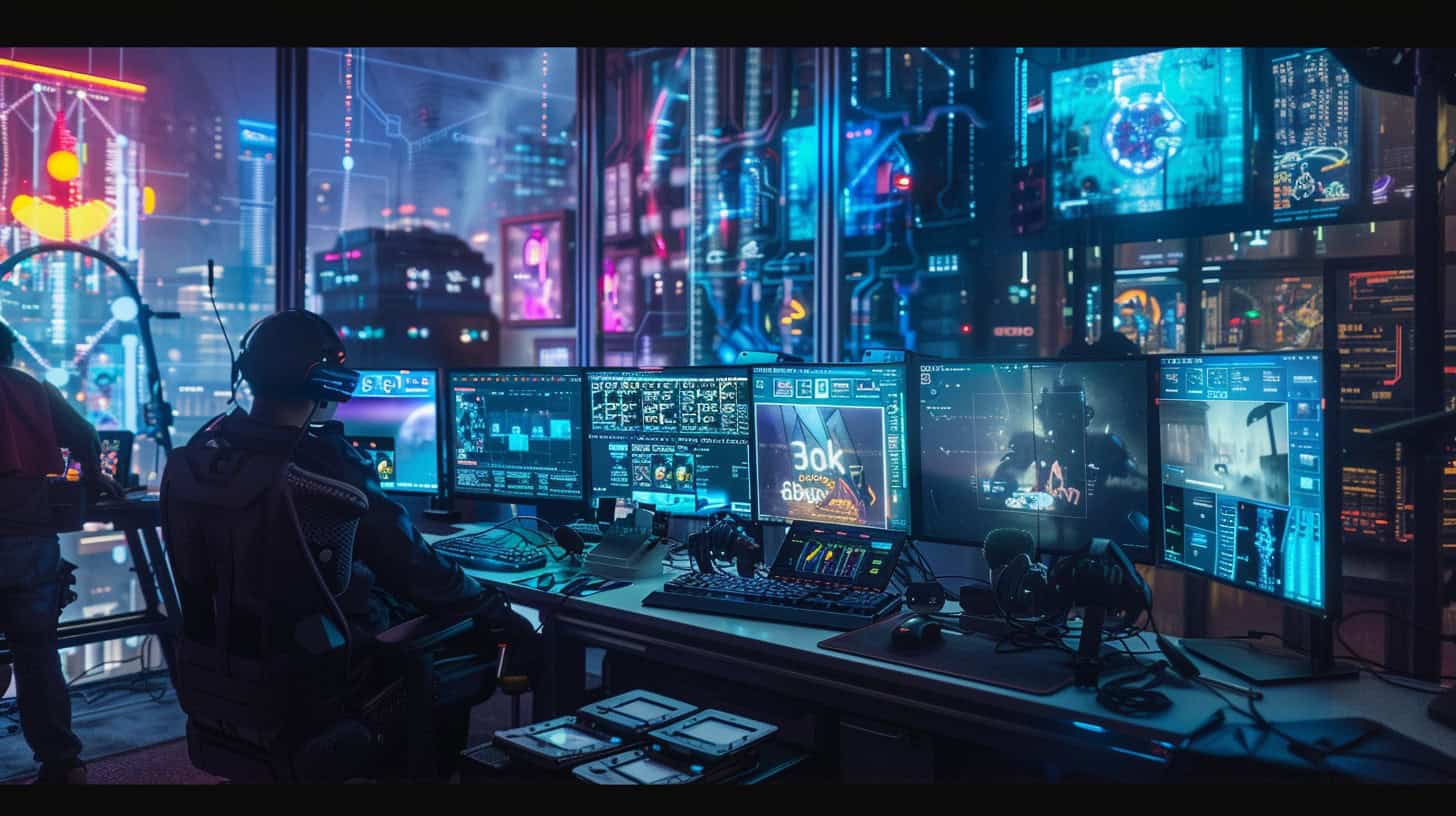
Gamers are standing up and voicing their concerns. They’re fighting for better games through consumer advocacy groups and social media campaigns.
The Emergence of Consumer Advocacy in Gaming
Players got fed up. They saw too many games come out half-baked, filled with microtransactions or loot boxes that felt more like traps than treats. This wave of frustration sparked a movement.
Consumer advocacy groups started to stand up for gamer rights, pushing back against the tide of profit-first strategies from big companies. They demanded better quality games, fairer practices, and laws to keep predatory monetization in check.
Countries listened and began regulating loot crates in video games, calling them out for gambling tactics hidden in flashy graphics. Online forums buzzed with discussions on how to demand respect from game developers and publishers, who seemed to have forgotten who plays their games.
This wasn’t just about getting mad online; it was about making real changes happen—getting laws passed and holding companies accountable became part of everyday conversations among players around the world.
Change is not made by those who sit down—it’s made by standing up.
Consequences for Game Sales and the Industry’s Image
Gamer frustration with microtransactions and unfinished games has hurt game sales. Titles rush to market before they’re ready, leading to a wave of refunds and lost trust. Think Cyberpunk 2077’s rocky launch; it left fans feeling burned and wary of hype.
This push for profit over passion tarnishes the industry’s image. Countries banning loot boxes show how serious this issue is. It sends a message: gamers are fed up with being treated like ATMs instead of passionate players.
The result? A shaken faith in big gaming studios and a call for change that echoes across forums, reviews, and social media channels worldwide.
The Road Ahead for the Gaming Industry
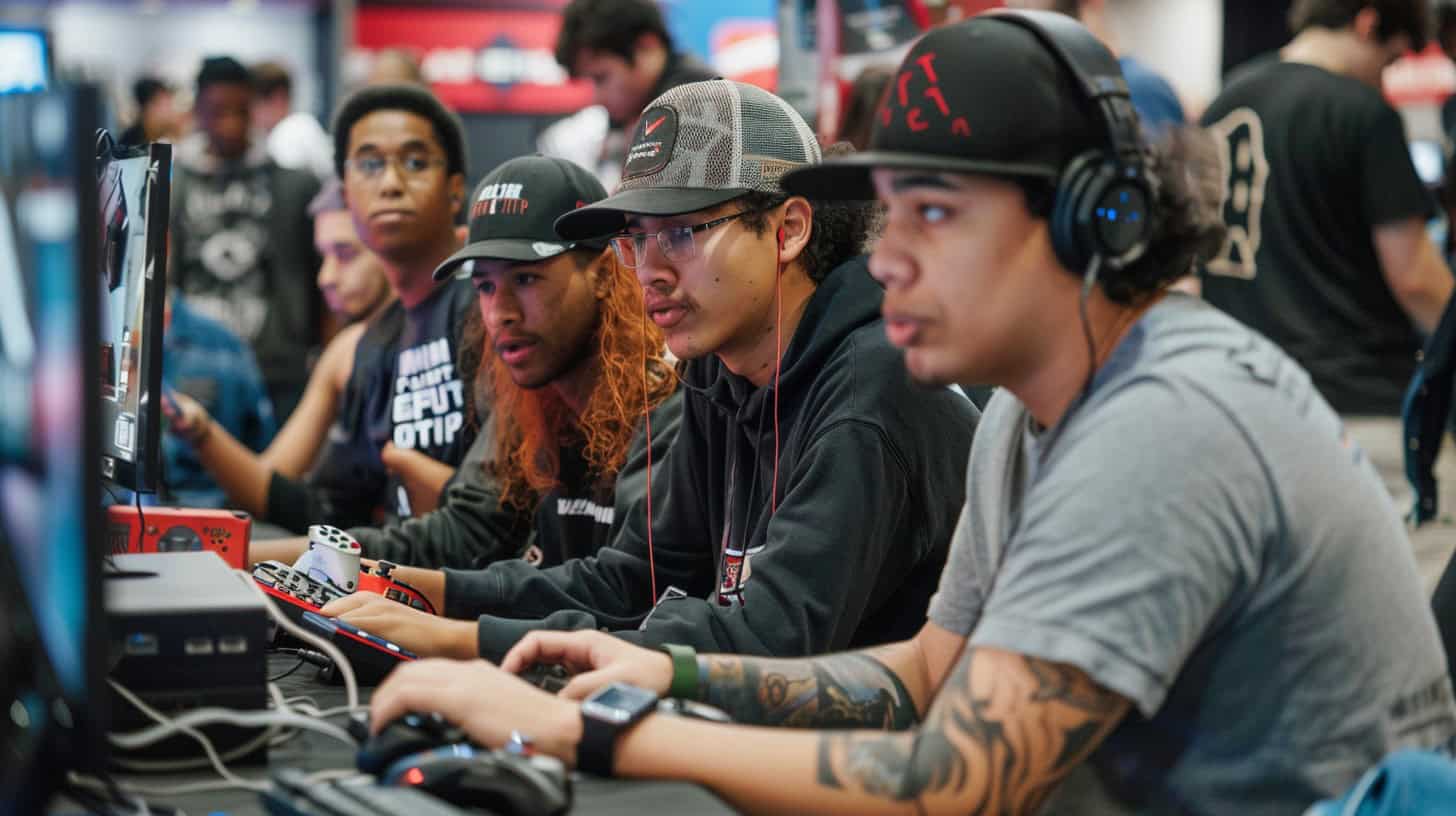
Looking ahead, the gaming world is on the brink of some big changes. With virtual reality gear like Meta Quest 3 and next-gen consoles gearing up, gamers’ expectations are sky-high.
Predicting a Potential Market Downturn
Seeing signs of a market downturn isn’t just about looking at sales charts or the latest trend in open-world games. It’s deeper, tied to gamers feeling bored and developers focusing more on profit than passion.
This shift leads to games filled with microtransactions and unfinished projects hitting shelves. Add high game prices into the mix, and players start tightening their wallets.
Gaming used to be an escape, now it feels like a trap.
All these factors—sky-high development costs, battles over exclusives between tech giants like Microsoft’s acquisition of Activision Blizzard and Apple entering the fray with Vision Pro—signal rough waters ahead.
Remember, gamers are smart; they notice when quality drops and when their favorite hobby is milked for every penny. The industry might face pushback if it keeps prioritizing cash over creativity.
Emerging Technologies and Gaming Platforms
Even though some worry about gaming’s future, new tech keeps the industry exciting. Let’s dive into what makes these advances so thrilling.
- Virtual reality (VR) is getting bigger and better. Systems like PlayStation VR2 offer players a chance to step into games as if they’re really there. Imagine fighting dragons or exploring space stations, feeling like you’re part of that world.
- Augmented reality (AR) is blending our world with game worlds. Apps and devices let you catch creatures in your backyard or solve mysteries in your city streets.
- Cloud gaming lets you play big games on any device, no high-end console needed. Services like Xbox Cloud Gaming mean you can start a game on one device and finish on another without skipping a beat.
- Mobile gaming keeps soaring with better phones and app stores full of options. Games from simple puzzles to epic adventures fit right in your pocket, ready whenever you are.
- The rise of cross – play breaks down walls between gamers on different platforms. Now friends can team up or face off whether they’re on PlayStation 5, Xbox Series X, or Nintendo Switch OLED.
- Subscription services give a buffet of games for a monthly fee. Xbox Game Pass and Apple Arcade lead the charge, offering everything from indie hits to blockbuster titles without buying each one.
- New controllers and accessories are changing how we play. Devices like the Back Button Attachment turn regular controllers into pro-level gear, giving players more control over their game experience.
- Indie games shine brighter than ever thanks to digital distribution and supportive communities online—allowing creative gems to find their audience without huge budgets or ads everywhere.
- Esports grow, drawing fans to watch pros battle it out in Overwatch leagues or Fortnite festivals online and in huge arenas around the world.
- Remakes and retro games bring classics back with updated graphics and controls—making old favorites new again for both long-time fans and newcomers eager to explore gaming history.
With all these innovations pushing forward, gaming’s horizon looks bright indeed! From diving headfirst into virtual realities to playing top-tier titles on the go with cloud technology—the ways we play continue to evolve at breakneck speed.
Evolving Player Expectations and Their Impact
As new technologies shape the gaming world, players’ wants are changing too. Gamers now demand more than just a good story or fancy graphics. They look for healthy gaming experiences and want to dive into open worlds that feel alive and evolving.
The days of being happy with a simple game are long gone. Today’s gamers seek adventures where they can go AFK and still feel connected.
Companies must listen closely to these voices. If not, they risk losing touch with their audience. Players tired of corporate greed show it by standing against microtransactions and games that push profit over passion.
Communities form around values like player respect and transparency in game development. Games like “Destiny” or open-world giants become places where players spend years exploring every nook and cranny while forming lasting bonds with other adventurers worldwide.
This shift shows us: give gamers what they truly desire, and they will stay loyal for years to come.
FAQs About Whether Gaming Is Dying
Is gaming really on its last life?
Not at all! While some folks might feel a bit bored of gaming or find themselves going AFK more often, the world of gaming is far from taking its final bow. With new advancements like the Apple Vision Pro and games that pull us into open worlds or thrilling Metroidvanias, there’s always something to get excited about.
What’s new with consoles and gadgets in 2024?
The gadget game is leveling up big time! From the PSVR2 making waves to the Quest 2 bringing virtual adventures to our living rooms, there’s no shortage of tech magic. And let’s not forget about those who love retro vibes – consoles like the PSOne and GameCube still hold a special place in our hearts.
Are mobile games changing the scene?
You bet they are! Mobile games have turned into pocket-sized powerhouses, offering everything from quick puzzles to epic adventures like Alan Wake. Plus, with features like app tracking transparency getting tighter, your data stays safe while you play.
How are companies keeping things fresh in gaming?
Game developers aren’t hitting pause anytime soon. Companies like Remedy Entertainment keep dishing out hits, while acquisitions shake things up behind the scenes. And for those who dig creativity, modders breathe new life into classics by hacking them into entirely new experiences.
Can gamers expect any big comebacks or surprises?
Absolutely! Keep an eye out for nostalgic trips down memory lane, with remakes of gems like Final Fantasy 7 and Star Wars: Knights of the Old Republic making headlines again in 2024; it’s like meeting old friends but with fancier graphics!
What challenges do gamers face today?
From dodging cyber threats lurking in multiplayer arenas to navigating through murky waters filled with NFTs and crypto temptations – it’s a whole new level of cybersecurity questing for players nowadays.
